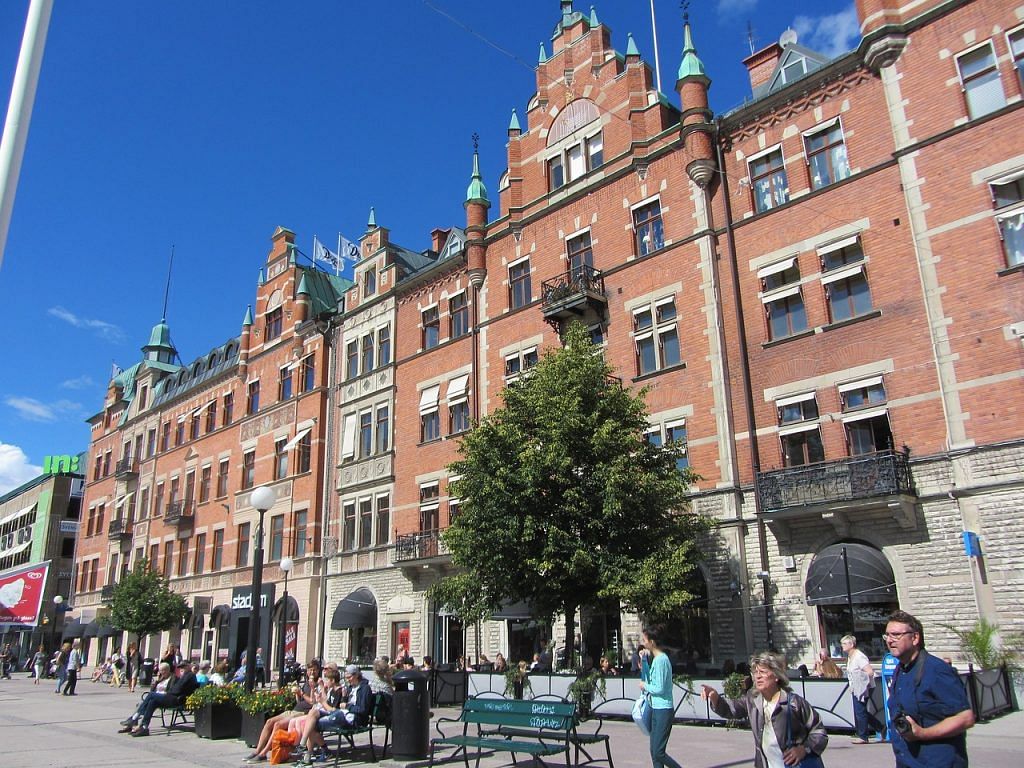New Delhi: Sweden was lauded for its ‘low-scale’ lockdown Covid-19 strategy, which relies heavily on voluntary social distancing, but it is now discovering that being counterintuitive may not be the best approach in matters of public health.
When most of its neighbours were shutting down schools, businesses and restaurants, and asking people to stay at home and avoid gatherings, Sweden took a different route — it let life continue as before with social distancing guidelines but no stringent measures.
The country decided that rather than shutting down and reopening suddenly, which may see a sudden spike in cases, a “low-scaled” lockdown that kept it running may be a better option.
Anders Wallensten, Sweden’s deputy chief epidemiologist, described the strategy as a slow spread of infection to ensure health services are not overwhelmed, arguing that it was important for a part of the population to acquire immunity.
The strategy relies on the epidemiological concept of herd immunity, which means if enough members of a certain population are infected with the virus, it offers protection to other vulnerable members and keeps the disease in check.
The country of 10.2 million population depended on its robust healthcare system to protect it if the cases do rise.
Over the past week, however, the number of Covid-19 cases in Sweden have been rising with 700 new cases reported just on 24 April.
In all, as of 24 April, Sweden has 17, 567 cases with 2,156 deaths.
This is over double the cases and more than 20 times the deaths recorded by its nordic neighbours such as Norway (7401 cases, 195 deaths) and Finland (4395, 177), both of whom implemented stringent lockdowns. Finland is, in fact, in the process of easing lockdown measures as its cases have been reducing.
The deaths per million in Sweden is now 198, higher than Germany (67) and even the United States (152), the worst affected country in the world right now.
It also begs the question — Did Sweden’s gamble backfire?
There are sharp differences in COVD19 strategists between the Nordic countries. And also a distinct difference in results as measured in deaths. pic.twitter.com/Egw51K02Xk
— Carl Bildt (@carlbildt) April 16, 2020
Self-restraint and choice
At the heart of the Swedish approach is the country’s emphasis on individual freedom as well as self restraint.
In an interview with The New York Times in March, state epidemiologist Angus Tegnel said, “That’s the way we work in Sweden. Our whole system for communicable disease control is based on voluntary action. The immunization system is completely voluntary and there is 98 percent coverage.”
Hence while the public messaging focussed on social distancing, hand washing and keeping those above the age of 70 years safe, the Swedish government did not close primary and secondary schools and allowed restaurants, salons and markets to run.
Even gatherings up to 500 people were allowed in the early phase. Only high schools were shut and people were advised to work from home.
Swedes even though they approved of the government’s decision to not order a lockdown, kept away from public life — public transport saw a 60 per cent drop and ski resorts lay empty.
The strategy, however, did not take into consideration the asymptomatic carriers of the disease, the high number of elderly population and the fact that self-reliance may not work in a public health crisis, wrote Hans Berstorm, member of Royal Swedish Academy of Engineering Sciences.
By April, the number of Covid-19 cases began rising rapidly, especially in nursing homes for the elderly. It was estimated that almost one third of the nursing had at least one case of coronavirus.
Number of ICU admissions due to Covid-19 has doubled since March in Sweden and as of 24 April, nearly 1,244 patients are in intensive care units.
The death toll is highest among immigrant families who live with more intergenerational families and senior citizens.
Also read: Kerala Covid curve has flattened, despite recent spike. Doctor who handled Nipah explains how
Experts urge the government to reconsider
The Swedish government has responded by posing new restrictions, such as not allowing more than 50 people to gather at one time, advising spacing measures in restaurants, banning international travel and visits to nursing homes.
But a section of experts think it is a matter of too little too late.
In March, a petition by 2,000 experts and academicians initiated by six professors at Karolinska Institutet, its apex research body, urged the government to reconsider its stand on lockdowns.
Countries that depended on herd immunity such as the United Kingdom and Netherlands have already changed course as cases and deaths have risen.
“We still have some time to react and suppress the virus. Our nation should not be the exception in Europe. We request that our government takes action now!” wrote the academicians.
Tegnell, the country’s chief epidemiologist, is defiant. He claims the strategy is working and the numbers are stable: “We will see the impact of the herd immunity kick off soon in a couple of weeks.”
Sweden’s Prime Minister Stefan Löfven has, however, warned that the coronavirus strategy may have slowed down the number of cases but they will see more seriously ill patients needing intensive care. “We count the dead in thousands,” he said.
Also read: 30 days in lockdown, India has been able to control rate of Covid-19 infections, says govt
